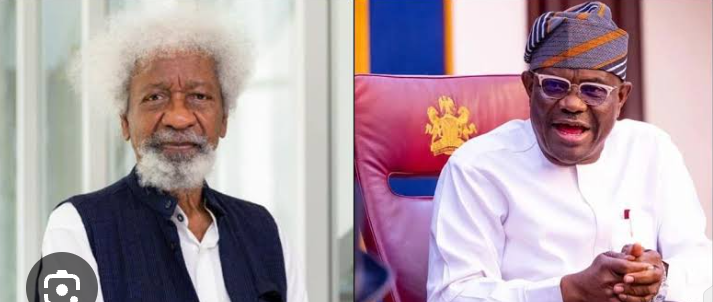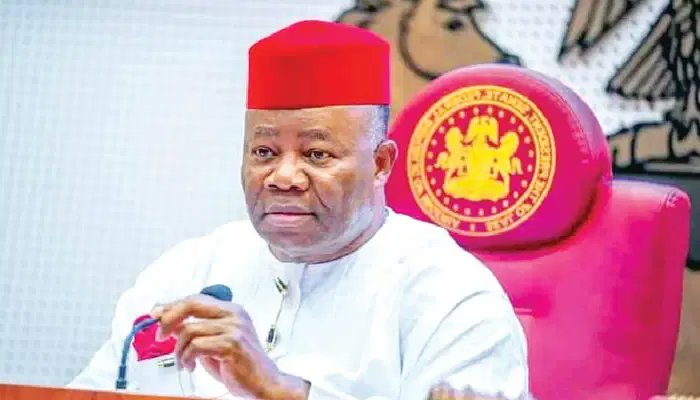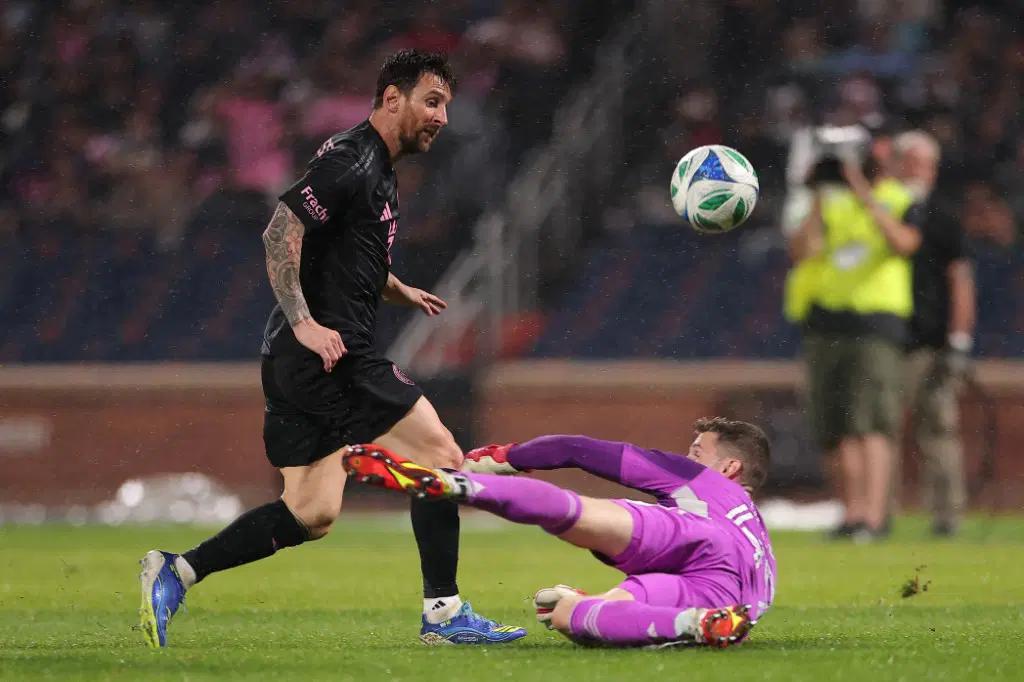
“Not Milk Wash Again!” — Uriel Slams DDG as Outrage Grows Over Rapper’s Viral ‘Yansh’ Comment About Lagos Women
The Nigerian social media space erupted on Thursday after American rapper DDG posted a controversial tweet announcing his excitement about visiting Lagos “next month” — not for the food, culture, music, or business opportunities, but because, in his own words, “ME WANT N YANSH.” The remark instantly triggered widespread reactions,
The Nigerian social media space erupted on Thursday after American rapper DDG posted a controversial tweet announcing his excitement about visiting Lagos “next month” — not for the food, culture, music, or business opportunities, but because, in his own words, “ME WANT N YANSH.” The remark instantly triggered widespread reactions, none louder than that of former Big Brother Naija star Uriel Oputa, who condemned the message as a blatant objectification of Lagos women and a disturbing reflection of how outsiders perceive Nigerian women.
The drama began when DDG — known for his massive YouTube following, rap career, and relationship with singer Halle Bailey — shared what many Nigerians considered an unserious and distasteful post. Instead of a celebratory or respectful message ahead of his announced Lagos trip, the rapper opted for a crudely sexualised tone. While some fans laughed it off and quoted the tweet with jokes, many Nigerians felt offended, arguing that the statement demeaned women in Lagos and reduced them to objects of sexual pleasure. Uriel, known for speaking her mind without hesitation, wasted no time in calling out the behaviour.
In her Instagram reaction, she wrote, “This ain’t even funny. See how they have objectified Lagos women. Girls, this ain’t even a flex. But what do I know? Some will be planning body scrub, milk wash upon his arrival. So this is how the world see us in Lagos?” Her comment immediately sparked a debate on Instagram and X, with thousands of users agreeing that the statement was disrespectful, especially coming from a foreign celebrity with a large fan base.
Uriel’s frustration echoes a growing concern among Nigerians — particularly women — about how social media spaces have contributed to amplifying hypersexualized stereotypes about certain cities, especially Lagos. In recent years, content portraying Lagos women as excessively materialistic, transactional, or overly sexual has become common online, often propagated by influencers, comedians, and even musicians. For critics, DDG’s tweet is simply a reflection of a global perception shaped by the content Nigerians themselves sometimes export. For supporters, however, Uriel’s response is a necessary wake-up call to challenge and correct these narratives rather than encourage them.
While Uriel expressed disappointment, many Nigerians online didn’t help her case. Within minutes of her post, screenshots began circulating of users jokingly dropping their location, saying DDG should “come and choose,” while others playfully argued about which part of Lagos had the “best supply” of what he was seeking. The humour, although typical of Nigerian social media culture, only intensified the debate about whether Nigerians trivialize serious issues too easily, thereby worsening how foreigners perceive the country.
But the deeper question remains: why did DDG feel comfortable making such a statement publicly? Social commentators argue that much of this stems from how Nigerian pop culture is consumed globally. Nigerian music, skits, lifestyle vlogs, nightlife videos, and relationship content often portray women in highly sexualized roles. International audiences with little cultural context tend to absorb these portrayals as the norm. As a result, some foreigners begin to see Nigerian women not as complex individuals but as caricatures shaped by online trends. Uriel’s outrage seems to stem from this fear — that Lagos women may be losing their global identity to a stereotype they never asked for.
Others, however, argue that Uriel may be overreacting to what they perceive as “normal American humour.” They claim DDG is simply playing into his social media personality — loud, unserious, and attention-seeking. But critics of this argument say that even if DDG intended it as humour, it crossed a boundary by sexualizing an entire demographic of women. As one user wrote, “If a Nigerian celebrity tweeted something like this about Los Angeles women, the internet would explode. So why should it be acceptable when it’s directed at Lagos women?”
Interestingly, DDG himself has not responded to the backlash. Whether he is aware of the uproar or simply ignoring it remains unclear. However, his original tweet continues to spread, with over 30,000 interactions and counting. Many posts contain memes, others serious discussions, and some outright condemnations — but all illustrating how deeply the comment struck a nerve.
Another layer to this controversy is the sarcastic line “Not milk wash,” which went viral after Uriel’s post. Nigerians quickly turned it into a trending joke, mocking how some people supposedly prepare for visiting celebrities or wealthy foreigners. While many found that part hilarious, others insisted that the humour distracts from the core issue of objectification and irresponsible social media behaviour.
Uriel’s concern also touches on a broader societal discussion about self-worth, external validation, and how young women respond to fame and celebrity attention. If some Lagos women view DDG’s visit as an opportunity to seek clout or financial gain, critics argue that it reinforces the very narrative Uriel is fighting against. This cycle — where outsiders sexualize Nigerian women and some Nigerians play along for jokes or benefits — ultimately damages the country’s image and deepens harmful stereotypes.
For many Nigerians, however, the most disturbing part of the conversation is the ease with which a foreign celebrity can sexualize Nigerian women without fear of consequence or criticism from his own followers. It raises questions about respect — do foreigners see Nigeria merely as a playground for entertainment, pleasure, and thrills? And if so, who is responsible for creating that impression?
In the midst of the heated reactions, some Nigerians have suggested that this moment should spark meaningful reflection. Rather than focusing solely on DDG’s comment, they argue that Nigerians should examine how their content, nightlife culture, social media trends, and celebrity behaviour contribute to the global perception of Lagos women. While it is unfair and inaccurate to generalize millions of women based on online stereotypes, it is equally important to acknowledge how cultural exportation shapes global opinion.
As the debate continues, one thing is clear: Uriel’s voice, whether loved or criticized, has once again sparked an important conversation. Her frustration stems not just from DDG’s tweet, but from a pattern she believes has gone too far — a pattern where Lagos women are constantly sexualized, judged, or dismissed based on narratives they did not create. Her post forces Nigerians to question what image is being sold to the world and whether enough is being done to change it.
Whether DDG will address the controversy, adjust his language, or proceed with his Lagos trip without further comment remains to be seen. What is certain, however, is that his tweet has ignited a nationwide conversation on respect, representation, and the treatment of Nigerian women online. And as the jokes, criticisms, and debates continue to unfold, one truth stands firm: Nigerian women — especially those in Lagos — refuse to be reduced to stereotypes, no matter who is speaking or how loudly they say it.
Share this post
Related Posts

Concern, Shock and Questions Trail Viral Photo of Wole Soyinka’s Swollen Leg During Visit to Benue Governor
A single photograph has once again sent Nigerians into a spiral of concern, speculation and...

JUST IN: Senate President Akpabio Denies Links to Jailed INEC Officer Convicted of Election Rigging
On May 1, 2025, a significant statement emerged from Nigeria’s political sphere as Senate President...

Messi Magic: Brace Lifts Inter Miami Over NYCFC 4-0, Playoff Secured
Lionel Messi once again delivered a masterclass as Inter Miami stormed into the MLS playoffs...